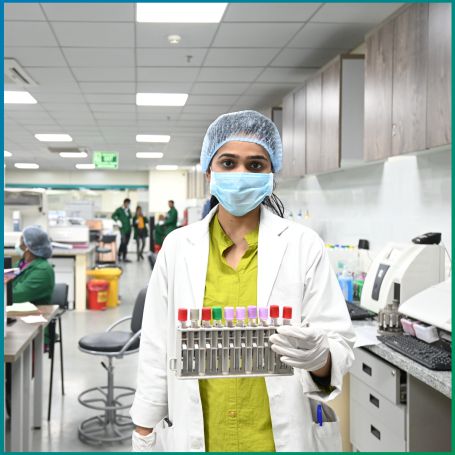
Triglycerides are a type of fat (lipid) found in your blood. When you eat, your body converts any calories it doesn’t need right away into triglycerides.

The triglycerides blood test measures the amount of triglycerides in your blood. This test is usually part of a lipid panel or lipid profile, which also includes tests for cholesterol levels. The test helps determine your risk of developing heart disease, particularly when combined with other tests that measure cholesterol levels, such as HDL (high-density lipoprotein) and LDL (low-density lipoprotein).
High levels of triglycerides in the blood are associated with atherosclerosis, the hardening and narrowing of arteries, which can lead to heart disease, heart attack, and stroke. Elevated triglycerides can also indicate underlying conditions such as Obesity, Poorly controlled diabetes, Kidney disease, Hypothyroidism, Metabolic syndrome (a combination of high blood pressure, high blood sugar, excess body fat around the waist, and abnormal cholesterol levels). A serum triglycerides test is important because it can help identify individuals at risk and guide necessary lifestyle or medical interventions.
The triglycerides blood test is a simple procedure that requires a small blood sample. Here’s how it typically works:
1] Preparation: You may be asked to fast (not eat or drink anything except water) for 9 to 12 hours before the test to ensure accurate results. This is because triglyceride levels can increase after eating. Inform your healthcare provider of any medications or supplements you are taking, as some substances can affect triglyceride levels.
2] Blood Sample Collection: A healthcare provider will draw a small amount of blood, usually from a vein in your arm. The process takes only a few minutes and involves minimal discomfort.
3] Laboratory Analysis: The blood sample is sent to a laboratory, where the serum triglycerides test is conducted. The triglycerides level is measured and reported in milligrams per deciliter (mg/dL).
4] Results: Results are typically available within a few days. Your healthcare provider will discuss your results with you and explain what they mean.
1] Normal: Less than 150 mg/dL
2] Borderline High: 150 to 199 mg/dL
3] High: 200 to 499 mg/dL
4] Very High: 500 mg/dL or higher
1] Diet: High intake of carbohydrates, sugar, and alcohol can raise triglyceride levels.
2] Physical Activity: Lack of exercise can lead to higher triglyceride levels.
3] Body Weight: Being overweight or obese is often associated with higher triglycerides.
4] Smoking: Tobacco use can contribute to higher triglyceride levels and increased heart disease risk.
5] Medical Conditions: Diabetes, kidney disease, and hypothyroidism can cause elevated triglycerides.
At Diagnopein, we offer comprehensive, accurate, and timely diagnostic services, including the serum triglycerides test Pune. With our NABL-accredited labs, cutting-edge technology, and skilled technicians, you can be assured of reliable results every time. Get your results quickly, especially when time is crucial in detecting severe infections.
Competitive pricing without compromising on quality. Our team of experienced professionals ensures the test is conducted smoothly with minimal discomfort. We provide not just the serum triglycerides test results but insights into your health condition, helping you and your doctor make informed decisions about treatment. For more information call us at +91 9204 108108.
1. Triglyceride
Yes, certain medications can raise triglyceride levels, including birth control pills, corticosteroids, beta-blockers, and diuretics. Inform your healthcare provider about any medications or supplements you are taking before the test.
High triglyceride levels are associated with an increased risk of cardiovascular diseases, such as heart attack and stroke. They can also contribute to the development of fatty liver disease and pancreatitis.
You are usually required to fast for 9 to 12 hours before the test, meaning you should not eat or drink anything except water during this time. This fasting ensures accurate results since triglyceride levels can increase after eating.
The test is a simple blood draw. A healthcare provider will take a small sample of blood from a vein in your arm. The procedure takes only a few minutes and is relatively painless, with just a slight pinch at the site where the needle is inserted.